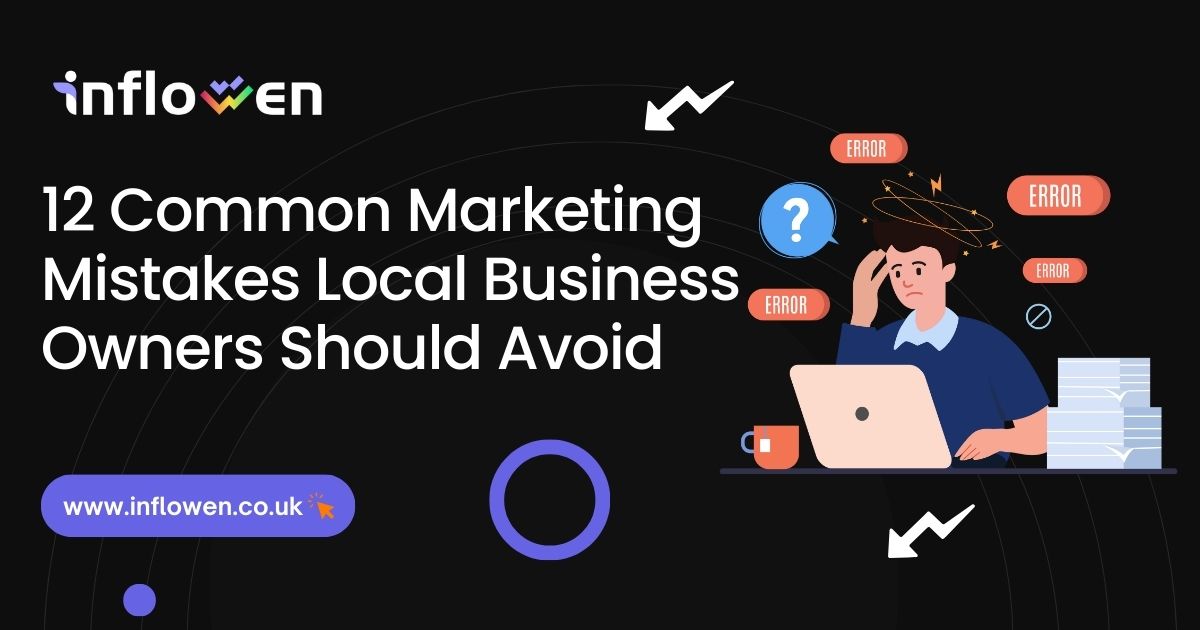Backlinks are a critical component of SEO, serving as a way for one website to endorse another by linking to its content. Essentially, they act as votes of trust in the online world, signalling to search engines that your content is credible and worth ranking.
A backlink is a link from another website to yours, and it plays a vital role in search engine rankings. However, not all backlinks are created equal. High-quality backlinks, coming from authoritative and relevant sites, are crucial for improving your search engine visibility and driving organic traffic. When a reputable site links to your content, it indicates to search engines that your content is valuable and trustworthy, boosting your ranking potential. Moreover, high-quality backlinks not only improve your SEO but also establish your website as a credible source within your industry.
Several factors contribute to what makes a high-quality backlink, such as the authority of the linking site, the relevance of the content, and the contextual placement of the link. Links from authoritative sources, within relevant content, and placed naturally within the body of the text (rather than footers or sidebars) are particularly valuable. This is similar to how businesses benefit from local SEO strategies, such as appearing in the Google Maps 3-pack, where the relevance and trustworthiness of your business make you more visible to local searches.
What are Backlinks?
Backlinks, also known as inbound or incoming links, are hyperlinks that direct users from one website to another. In simple terms, when a website includes a link to your site within its content, this is considered a backlink. These links act as endorsements, signaling to search engines like Google that your content is valuable and relevant.
Additionally, backlinks are essential for SEO because they help search engines assess a website’s authority and relevance. A site with numerous high-quality backlinks is perceived as more trustworthy, which improves its search engine rankings. They play a central role in defining the credibility and reliability of a webpage in the eyes of search engines, directly influencing visibility.
Key Factors that Define a High-Quality Backlink
Not all backlinks are of equal value. High-quality backlinks are those that come from credible, relevant, and authoritative sources. These are some of the key factors that make a backlink valuable:
- Relevance:
Links from websites or pages that are related to your content hold greater value. If your site is about health and fitness, a backlink from a fitness blog or a health magazine carries more weight than one from a completely unrelated niche. This relevance indicates to search engines that your content is useful to your target audience. - Authority:
The authority of the linking domain is crucial. Websites with high domain authority, such as well-established news outlets or reputable organizations, offer more value when they link to your site. Google sees backlinks from authoritative sites as a signal that your content is trustworthy. - Trustworthiness:
A backlink from a highly trusted website provides more credibility. Sites that follow best SEO practices, have secure connections (HTTPS), and a positive reputation are considered trustworthy. Before acquiring backlinks, ensure that the linking site maintains good SEO practices and a clean reputation to avoid penalties. - Placement & Context:
The location of the backlink on the webpage matters. Links embedded naturally within the content (contextual links) are more valuable than those placed in sidebars, footers, or non-content areas. A backlink in the main content indicates higher relevance and offers a better user experience, which Google favours.
Why High-Quality Backlinks are Important in SEO?
High-quality backlinks are crucial for SEO because they play a vital role in how search engines rank websites. Here’s why:
- Improves Search Rankings:
Backlinks serve as a vote of confidence from one website to another. The more high-quality backlinks a site has, the more likely it is to rank higher in search engine results. Search engines like Google view backlinks as an indicator of a site’s popularity and authority. - Drives Organic Traffic:
Backlinks from reputable sites can significantly increase organic traffic. When users click on a link that directs them to your website, it creates an additional source of traffic that helps grow your audience naturally. The better the source, the more targeted the traffic, leading to better engagement and conversions. - Establishes Authority:
A site with numerous high-quality backlinks is seen as an authoritative figure in its niche. This not only improves rankings but also builds your business’s reputation within your industry. Over time, this authority leads to more backlinks, creating a cycle of growth and trust. - Helps in Faster Indexing:
Search engines discover new content by crawling links from other indexed pages. If your site has backlinks from frequently crawled sites, it’s more likely that your pages will be indexed faster by search engines.
Tools and Metrics for Backlink Evaluation
Several tools and metrics can help you evaluate the quality of your backlinks. Understanding these metrics is key to refining your SEO strategy.
- Ahrefs:
Ahrefs offers a comprehensive backlink analysis tool that allows users to see who is linking to their site, what the backlink’s domain authority is, and what keywords those links are targeting. It also provides the Domain Rating (DR), which measures the strength of a website’s backlink profile. - WooRank:
WooRank provides detailed insights into your backlink health. It helps track backlinks, measure their quality, and compare them against your competitors, ensuring you stay ahead in your SEO game. - Moz:
Moz’s Link Explorer tool allows users to view their backlink profile and assess its quality using Domain Authority (DA) as the primary metric. DA indicates the likelihood of a domain ranking in search results, with higher DA representing stronger authority. - SEMrush:
SEMrush offers a powerful backlink analysis tool that provides insights into your site’s backlink sources, their authority, and anchor text distribution. It also helps identify toxic backlinks, which could harm your site’s ranking.
Key Metrics to Focus On:
- Domain Rating (DR): Measures the strength of a website’s backlink profile.
- Domain Authority (DA): Predicts how well a website will rank on search engines.
- Organic Traffic: Evaluates how much traffic the linking page receives, indicating the potential value of the backlink.
How to Acquire High-Quality Backlinks
Building a strong backlink profile requires strategic efforts. Here are effective methods to acquire high-quality backlinks:
- Create Linkable Content:
High-quality, engaging content like data-driven studies, infographics, or comprehensive guides naturally attracts backlinks. When you produce valuable content that others want to reference, your chances of earning backlinks increase significantly. - Outreach and Relationships:
Building relationships with industry influencers, bloggers, and website owners can help you secure backlinks through genuine outreach. Collaborating on content or offering insights in guest posts can lead to valuable backlinks. - Guest Blogging:
Writing guest posts for reputable websites in your industry is an excellent way to acquire backlinks. Ensure the content is high quality and relevant to the target audience, and use contextual links to your site within the body of the guest post. - Broken Link Building:
This strategy involves finding broken links on websites in your niche and offering your content as a replacement. It’s a win-win: the website fixes its broken link, and you gain a valuable backlink.
Common Backlink Pitfalls to Avoid
While backlinks are essential for SEO, some practices can harm your ranking:
- Avoiding Low-Quality, Spammy Backlinks:
Backlinks from irrelevant or spammy sites can hurt your rankings. These are often flagged by Google and can lead to penalties. - Paid Links and Link Schemes:
Buying backlinks or participating in link schemes is against Google’s guidelines and can result in significant penalties. Focus on building links naturally through valuable content and genuine relationships. - How to Disavow Harmful Backlinks:
If your site has accumulated toxic backlinks, use Google’s Disavow Tool to inform search engines not to consider those links when ranking your site. This can protect your site from potential penalties.
Best Practices for Maintaining a Strong Backlink Profile
To maintain a healthy backlink profile, it’s essential to follow these practices:
- Regular Backlink Audits:
Periodically audit your backlink profile to ensure all your backlinks are high quality. Use tools like Ahrefs or SEMrush to identify and disavow harmful links. - Stay Updated with Algorithm Changes:
Google frequently updates its ranking algorithm, so staying informed about changes in how backlinks are valued is essential to maintaining your SEO edge. - Encourage Organic Growth:
Focus on consistently creating valuable content that naturally attracts links. As your website’s authority grows, so will your backlink profile, helping to maintain a strong position in search rankings.
What is More Important: Great Content or High-Quality Backlinks?
Both great content and high-quality backlinks are equally important for SEO success. Quality content attracts readers and backlinks, while backlinks signal to search engines that the content is credible and valuable.
While content is the foundation of a website’s success, backlinks serve as endorsements that enhance its visibility in search results. Without backlinks, even excellent content may struggle to rank well. To achieve optimal SEO results, a balanced combination of both is essential.
What Are the Three Types of Backlinks?
The three main types of backlinks are natural, manual, and self-created. Natural backlinks occur organically when others link to your content without you asking.
Manual backlinks are gained through deliberate outreach, such as guest posting. Self-created backlinks are links you add yourself, like in forums or directories, though they carry lower value and must be used carefully to avoid penalties.
How Do I Improve My Backlink Score?
To improve your backlink score, focus on acquiring high-quality backlinks from authoritative and relevant websites. Avoid spammy or irrelevant backlinks that can harm your SEO.
Consistently create valuable content that attracts natural links, engage in outreach to build relationships with industry leaders, and use tools like Ahrefs or Moz to monitor and disavow toxic backlinks that could damage your site’s reputation.
What are High-Quality Backlinks (Examples)?
High-quality backlinks come from authoritative, relevant websites that provide real value. Examples include links from government websites, educational institutions, or well-known industry blogs.
For instance, if a fitness blog links to your fitness equipment store, that’s a high-quality backlink. It comes from a relevant, authoritative source and helps boost your website’s credibility and SEO ranking.
How Much Do Quality Backlinks Cost?
The cost of acquiring quality backlinks varies widely. Some backlinks come naturally through great content, while paid guest posts can range from $100 to $500 depending on the website’s authority.
However, purchasing backlinks is risky, as it violates Google’s guidelines. It’s best to focus on earning backlinks organically by creating valuable content and building relationships with reputable websites.
Tusar Ahmed is an SEO expert, he simplifies the complexities of SEO, Local SEO, and keyword strategies into engaging, easy-to-understand content. With a friendly and casual approach, he crafts articles that not only inform but also inspire action. Tune into his writings for a fresh perspective on boosting your online visibility!



